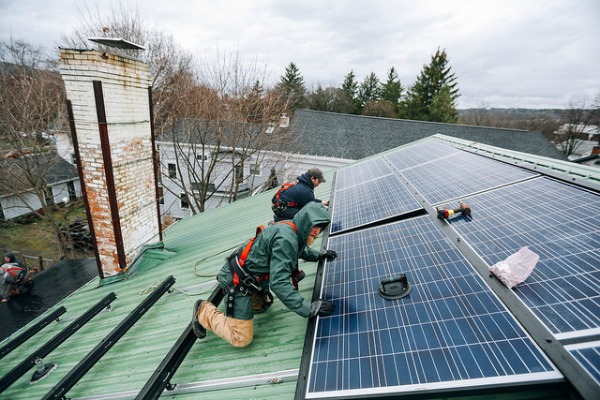In the wake of the economic limbo following 2008’s meltdown, consumer spending has teetered between penny-pinching and downright stingy. The entities perhaps hit the hardest, were the startups and the small business owners. Meanwhile, entrepreneurs and big business began erring on the side of caution: They audited everything.
*This post is brought to you by CopyPress
 Image via Pexels
Image via Pexels
In a desperate scramble to salvage their sinking ships, they plugged every hole. But many neglected an often-overlooked cash drain on any enterprise: a reluctance to conduct energy audits. Just as the IRS might perform a tax audit on your business accounts and finances, you should also audit your company’s energy usage. Startups, in particular, need to save money and slash expenses where ever they can. What follows are four reasons you should conduct a business energy audit.
Lower Energy Bills and Potential Government Grants
Image via flickr by 100isNow
In the same vein as home energy audits, a business energy audit can help you achieve greater energy efficiency. During an audit, an expert electrician will identify your biggest energy leaks and suggest energy conservation measures to rectify them. The incentives on your end include lower power bills and, possibly, government grants. Many countries, such as the United States, Canada, and Australia, offer government grans and loans to businesses looking to optimize their infrastructures by implementing strategies like energy auditing. It’s a definite win-win for all involved.
Benefits Beyond the Electrical
A typical energy audit starts with an analysis of an establishment’s HVAC system. During the audit, you can request that the technician test your electronics and appliances to determine their average electrical consumption. But the bulk of the audit will focus on factors such as poor insulation causing air leaks. The auditor will also consider your heating and cooling equipment (thermostats, air conditioning, hot water systems, etc.) because if not functioning at optimum levels, they use much more energy than required.
Trusted Results Using Computer Modeling and Data Analysis
According to the American Society of Heating, Refrigeration and Air-Conditioning Engineers (ASHRAE), an energy audit should consist of three levels. An ASHRAE Level 1 inspection, commonly referred to as a walk-through audit, serves solely to establish energy consumption trends and identify how you might improve them. At Level 2, the auditor performs diagnostic testing to evaluate your HVAC and ventilation system’s efficacy, your property’s insulation levels, and possible code violations, among other things. With an ASHRAE Level 3 audit, you’re presented with options for renewable (more sustainable) power systems. These might include geothermal HVACs, solar photovoltaic systems, and wind generators.
Reduced Business Costs
Conducting a business energy audit might not be on the average capitalist’s to-do list, but ever budding entrepreneur knows the value of wise investments: Don’t spend; invest. And with most energy audits concluding in reports that list potential returns on investment and life cycle savings, you can make informed decisions that can save you money in the long run.
These savings plus the possibility of qualifying for government grants and rebates make for an opportunity too good to pass up.

Leave a Reply